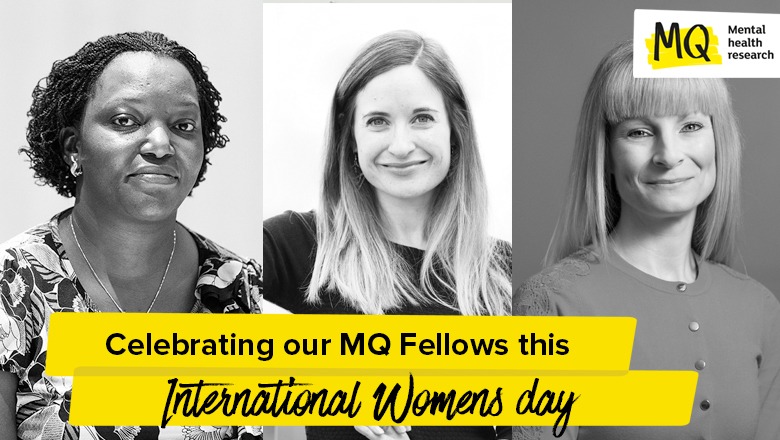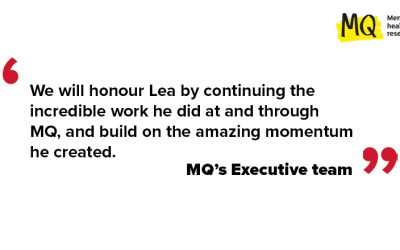This International womens day, we want to celebrate the achievements of three inspiring past MQ Fellows.
The MQ Fellows awards invests in early career researchers, giving them the support and funding they need to expand on their research and develop their careers within mental health science.
Dr Helen Fisher
MQ Fellow Helen Fisher used her award to understand how and why many children with troubled childhoods go on to develop psychotic experiences. She found that children growing up in a nurturing, positive home with at least one supporting adult were better protected against future psychotic experiences. She also found that children who experience post-traumatic stress symptoms following difficult experiences in their formative years are more likely to have psychotic experiences.
Whilst she was an MQ Fellow Helen published 14 peer reviewed papers. She has now gone on to become a research consultant for the NSPCC, has received several national and international awards for her work and is now a Reader in Developmental Psychopathology at Kings College London.
Helen continues to work with MQ and is now a member of our Science Council.
“I think that being an MQ Fellow has given me the confidence, solid data, and international profile to secure additional funding to extend my research into epigenetic mechanisms of adolescent psychosocial stress (awarded in 2015) and the involvement of wider environmental factors (particularly neighborhood social processes and pollution – awarded in 2015 & 2016) in the development of psychopathology.”
Dr Bronwyn Graham
Dr Bronwyn Graham from the University of New South Wales in Sydney used her MQ Fellowship to investigate the effect of hormones on anxiety disorders in women. She found that altering the timing of psychological therapy for women with anxiety disorders to work around their hormonal fluctuations can make the treatment more effective.
Whilst she was an MQ Fellow Bronwyn was promoted to senior lecturer and published 15 peer-reviewed publications. She has also received 9 other awards and recognitions including a prestigious American Association for Psychological Science ‘Rising star’ award. Since then Bronwyn has become an Associate professor and has received the Aubrey Lewis Award from Biological Psychiatry Australia.
“I have found MQ as a whole organisation to be extremely supportive.
The annual meetings were a joy to attend- it is a very rare occurrence to be in the same room as so many like-minded people who support scientifically rigorous and daring investigations into all aspects of mental health.
The meetings really stood out for me as a point of difference compared to other funding bodies as they opened up opportunities for meaningful collaboration that have proved fruitful.”
Ethel Mpungu
One of MQ’s very first Fellows was Dr Ethel Empungu from Uganda.
Ethels work in delivering community based therapy to people living with both AIDs and depression in remote communities in Uganda has been internationally recognised.
In February 2016, Ethel was one of the five recipients of the 2016 Elsevier Foundation Awards for Early Career Women Scientists in the developing world. In 2016 Ethel was honored by Ugandan President Yoweri Museveni with the Presidential National Independence Medal of Honor for her work with culturally sensitive group support psychotherapy.
She has since delivered Tedx talks and was named one of the BBC’s most influential women in the world.
Most importantly, Ethels research has the potential to make a difference to millions of lives globally. Of the 350 million people globally to have depression, 75% live in low income countries and 80% do not have access to treatment. Now learnings from Ethels study are being adopted by other countries across Africa.
“For me, being an MQ fellow gave me visibility in local communities, nationally and internationally. For my career development Prior to the MQ award, I had acquired research skills from my PhD training at Johns Hopkins University and had gain some research field experience. But without any significant funding, I felt like I was all dressed up with nowhere to go. Winning the MQ award gave my research career a new lease on life.”
The next MQ Fellows 2022 funding round is open for applications. This is open to both men and women whose work aims to address the mortality gap for people with serious mental illnesses.



